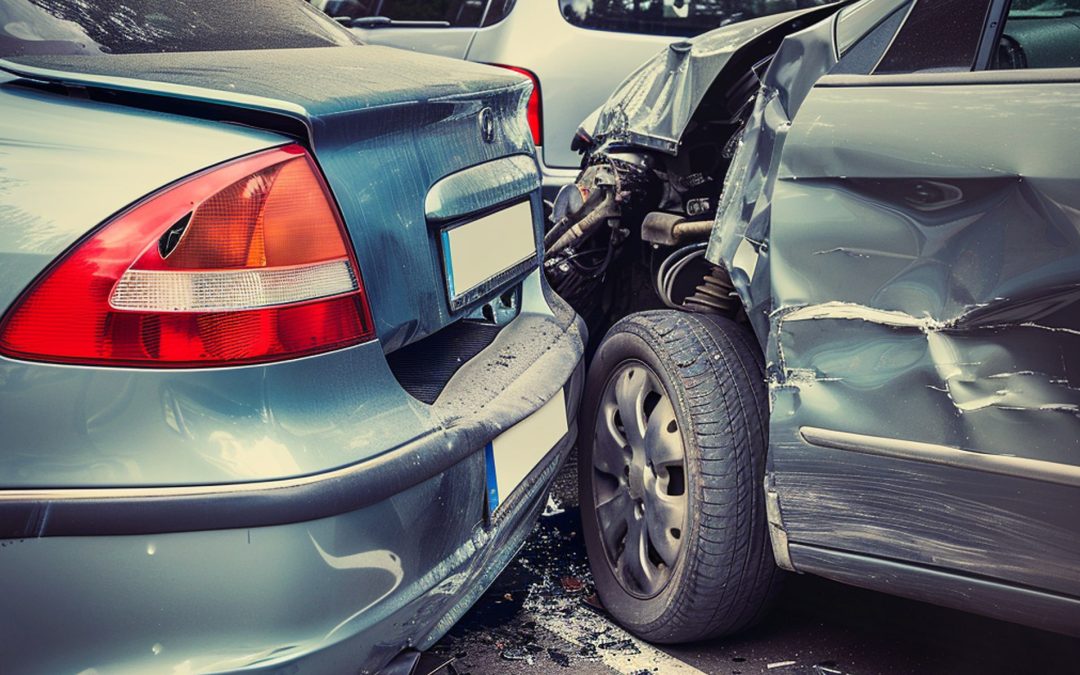While the Connecticut car accident statute of limitations is 2 years, exceptions to this rule exist, but understanding them can be difficult without expert advice from a CT law firm.
This guide offers a comprehensive overview, aimed at providing victims with the essential knowledge needed to protect their rights and pursue justice effectively.
Whether you’re dealing with minor injuries or facing significant losses, the information here will empower you to take the right steps within the legal timelines, ensuring that you do not miss the opportunity to seek the compensation you rightfully deserve.
Is there a statute of limitations on car accidents?
Yes, in Connecticut, as in all states, there is a statute of limitations for filing lawsuits related to car accidents. This legal timeframe defines the period within which an affected party must initiate legal proceedings to claim damages resulting from a car accident.
A Hartford car accident lawyer from our firm can help you understand this in more detail and ensure that your case is filed within the required timeframe.

What is the statute of limitations on a car accident in Connecticut?
The statute of limitations on a car accident in Connecticut is 2 years from the date of the accident. This falls under negligence law in the state, which gives victims two years from the date of injury to file a personal injury lawsuit.
Note that this same statute of limitations applies to property damage claims, giving you two years from the date of the accident to file a claim for vehicle damage with the at-fault driver’s insurance company.
When does the Connecticut car accident statute of limitations start?
The Connecticut car accident statute of limitations starts from the date of the accident for most cases. This “clock” begins to tick the moment the incident occurs, setting in motion the two-year deadline for filing either personal injury or property damage claims.
It’s crucial to note, however, that in situations where injuries or damages are not immediately apparent, the statute may begin from the date the injury was discovered, or should have been reasonably discovered.
This distinction is particularly relevant for injuries that manifest symptoms sometime after the actual event. Missing the deadline imposed by the statute of limitations has serious consequences; it typically results in the loss of the right to file a lawsuit to seek compensation for injuries or damages, effectively closing the door on any legal recourse against the parties at fault.
At this stage, you might be wondering if it’s worth hiring an attorney for a car accident or even if you should get a lawyer for a minor car accident. In our experience, it’s always best to consult with a car accident attorney, regardless of the severity of the accident or injuries.
Navigating the process after both minor or serious injuries can just add more pressure that you just don’t need when dealing with the fallout.
How long do you have to report an accident to insurance in Connecticut?
You have around 30 days to report an accident to the insurance company in Connecticut, but this can vary depending on your specific insurance policy. It’s always best to report the accident as soon as possible, even if you believe it was minor and did not cause significant damage or injuries.
Check your specific insurance policy for the exact timeframe as failing to report an accident within this period could result in the denial of your claim. Quick reporting not only ensures compliance with your policy’s terms but also aids in the timely investigation and processing of your claim.
Does the discovery rule apply in Connecticut?
Yes, Connecticut does have a “discovery rule” that applies to personal injury cases. This means that in certain circumstances, the two-year time limit may begin from the date an injury is discovered or reasonably should have been discovered, rather than from the date of the accident.
This rule can apply to injuries such as internal bleeding or head trauma, which may not be immediately apparent but manifest symptoms later on. In these cases, the two-year statute of limitations would begin from when the injury was discovered or should have been known.
Another example where the discovery rule may apply is in cases of property damage due to a car accident. If the full extent of damages was not immediately apparent, the statute of limitations could begin from when these damages were discovered or reasonably should have been known.

Exceptions to be aware of
While the general statute of limitations for car accident claims in Connecticut is two years, there are important exceptions that can affect this timeframe. It’s important for victims and their families to be aware of these exceptions to ensure they do not miss the deadline to file a car accident lawsuit.
Drunk driving accidents
In drunk driver cases, the Connecticut personal injury statute of limitations is one year from the date of service on the responsible party, rather than the standard two years.
Additionally, victims or their representatives must provide written notice of intent to sue within 120 days after the incident or 180 days if an investigation is still ongoing. This tighter timeframe highlights the importance of timely action in drunk driving cases.
Hit-and-run auto accidents
In cases where the driver at fault for an accident flees the scene and cannot be identified, the statute of limitations is extended to 3 years from the date of the accident. This allows time for victims to potentially locate and take legal action against the responsible party.
It’s essential to note, however, that this extension does not apply if the driver is later identified. In such cases, the standard two-year statute of limitations would apply.
Period of repose
Another key exception is the “period of repose,” which can extend the filing time under certain conditions. For example, some car accident claims may have a three-year repose period, allowing for an extension beyond the typical Connecticut personal injury statute of limitations.
Similarly, wrongful death claims arising from motor vehicle collisions may have a five-year period of repose. These extensions provide additional time for families and victims to seek justice and compensation under specific circumstances.
Wrongful death claims
When it comes to wrongful death claims resulting from car accidents, the statute of limitations begins from the date of the victim’s death, which might differ from the accident date.
This distinction is important for families seeking to file a wrongful death lawsuit, as the timing of their claim must align with this specific statute rather than the general limitation for personal injury claims.
Property damage and claims against the government
Furthermore, property damage claims and claims involving government entities have their own specific deadlines and requirements. Generally, claims for property damage must be filed within two years of the accident.
However, if a government vehicle or entity is involved, claimants may need to adhere to a different set of rules, such as providing notice to the government entity within a set period of time, which could be as short as 90 days from the date of the incident.
A working example
Let’s consider the hypothetical situation of Jane Doe, who was involved in a seemingly minor car accident in Connecticut. Initially, Jane believed she sustained no injuries and decided not to file a claim. However, three months later, she began experiencing severe headaches and was subsequently diagnosed with a traumatic brain injury (TBI) related to the accident.
Given the discovery rule in Connecticut, Jane’s two-year statute of limitations to file a personal injury lawsuit would start from the date her injury was diagnosed (the point at which it was discovered), rather than the date of the accident itself.
In a different scenario, if Jane’s car was hit by a driver under the influence of alcohol, the timeline for her to take legal action changes. For accidents involving drunk drivers, she would need to provide written notice of her intent to sue within 120 days after the accident, highlighting the narrower window for action in cases involving DUI.
These scenarios highlight the complexity of navigating legal timelines post-accident and the importance of understanding the specific statutes of limitations and exceptions applicable to each situation in Connecticut.
We recommend checking out our guide on what to do after a car accident that’s not your fault and how much can someone sue for a car accident. By familiarizing yourself with the essential steps to take and the relevant timelines to keep in mind, you can protect your rights and seek proper compensation if you ever find yourself involved in a car accident in Connecticut.
How Michael L. Chambers Jr. can help you
Navigating the complexities of the legal system, particularly around the Connecticut statute of limitations for car accidents, can be daunting. But you don’t have to go through it alone. Attorney Michael L. Chambers Jr. is here to provide the expert legal guidance and support you need.
With a deep understanding of Connecticut’s laws and a commitment to advocating for your rights, Michael is dedicated to ensuring you receive the justice and compensation you deserve.
Contact us today to ensure that your claim is handled correctly, maximizing your chances for a favorable outcome beyond the average car accident settlement in Connecticut. Get the support you deserve by reaching out for a consultation tailored to your specific case.
FAQs
What happens if I file my car accident lawsuit after the statute of limitations has expired?
If you file a lawsuit after the statute of limitations has expired, the court will likely dismiss your case. This means you will not be able to recover any compensation for your injuries or damages, highlighting the importance of acting within the legal time limits.
How does the statute of limitations work if the accident was caused by a defective product?
If a car accident was caused by a defective product, such as faulty brakes, the statute of limitations for filing a product liability claim is three years from the date of the accident. This timeframe provides victims the opportunity to seek compensation for injuries caused by defective items.
Is the statute of limitations different for claims against a drunk driver or the establishment that served them?
Yes, claims against a drunk driver or an establishment under dram shop laws may have different limitations. For drunk driving incidents, you typically need to provide written notice of your intent to sue within 120 days after the accident, emphasizing a more immediate action than other types of claims.
How soon should I contact a lawyer after a car accident in Connecticut?
It’s advisable to get in touch with a lawyer as soon as possible after a car accident in Connecticut, ideally within a few days. Getting early legal consultation can ensure the preservation of evidence and adherence to critical deadlines, enhancing your prospects for a favorable legal outcome.
What documents or information do I need to provide when consulting a lawyer about my car accident?
When consulting a lawyer about your car accident, you should provide any police reports, medical records related to the accident injuries, photographs of the accident scene and damages, contact information for any witnesses, and records of communications with insurance companies. This information can help your lawyer understand your case.


